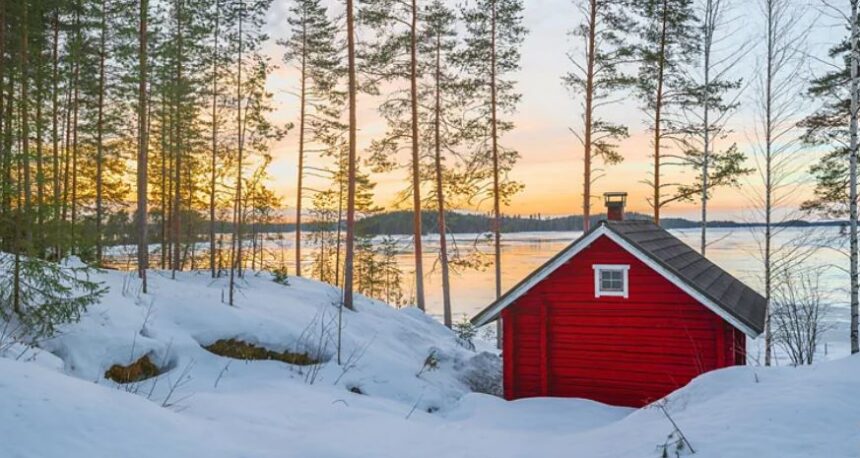Sweden: Siltanews – News Desk
Sweden’s long, cold nights might put you off going there in winter, unless, that is, you are in search of that elusive 21st-Century luxury: a good night’s sleep.
The ferry cuts through the icy Baltic waters as it makes its way around the eastern Swedish archipelago. Place names like Skarpö, Hjälmö and Gällnö are painted on rust-red huts lining the jetties. The suffix “Ö” means island in Swedish, a pictorial representation of a land mass surrounded by sea with two tiny people about to dock.
I am the only person to disembark at Svartsö, one of the few islands in the archipelago where accommodation remains open in winter. I make my way along a snowy track to Skärgårdshotell where I am shown to a cabin on the edge of a forest overlooking the dark expanse of Lake Svartsöfladen. It feels about as far away from it all as you can get.
My room is Swedish simplicity at its most minimal: a bed, a chair and a bedside table. No television, and not much else to distract me from the pristine tranquillity of my surroundings. This is just as well as I am here, primarily, to sleep.
In an age of relentless connectivity, sleep has become the ultimate luxury and spawned a new travel trend: sleep tourism, where sleep-deprived travellers are choosing their hotel on the basis of its pillow menu or booking themselves into away-from-it-all sleep retreats with tailored sleep-inducing activities.
Sweden has a different, more natural approach to sleep tourism, however, taking its cue from the landscape and a more traditional way of life. Often associated with bustling, connected cities like Stockholm and Gothenberg, come winter Sweden embraces its sleepy side and is inviting visitors to do the same.
The abundance of accessible nature and large areas of peaceful wilderness, combined with dark nights, cool temperatures and a cultural emphasis on relaxation, makes Sweden an ideal location for sleep tourism, explains Christian Benedict, a sleep researcher at Sweden’s Uppsala University. Studies have shown that technology and the way it impinges on our lives has a significant effect on our sleep, and spending more time in nature is tied to better mental health and fewer sleepless nights.

